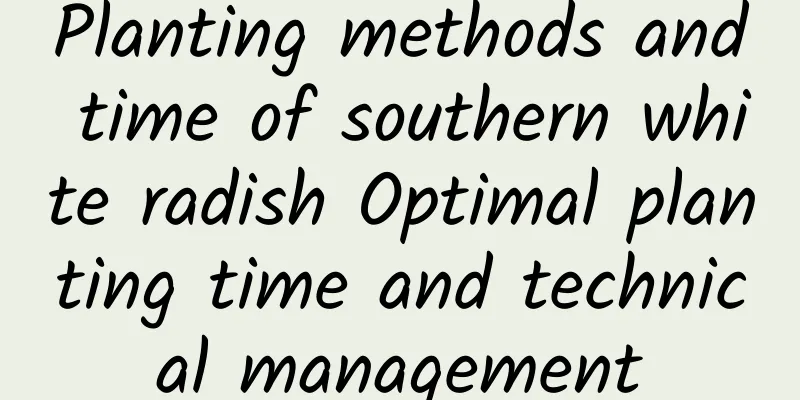Precautions for transplanting jasmine. Methods and techniques for growing jasmine in pots

|
Jasmine is fragrant and white, which is particularly pleasing to the eye. Many people grow it at home. In the process of growing jasmine, when the plant is too large or the soil in the pot is compacted, it must be transplanted in time so that the jasmine can grow and bloom better. Jasmine is usually transplanted in spring and autumn. The temperature changes too much between summer and winter, making it unsuitable for transplanting. The best time for transplanting is in March and April in spring, when growth has not yet begun and the nutrients consumed are relatively small, which has little impact on the jasmine. Key points for transplanting jasmine1. Remove from the pot: Stop fertilizing a few days before transplanting jasmine, control watering, and do not make the potting soil too wet. Be gentle when transplanting jasmine, be careful not to damage the root system of the plant, and try to keep the original soil of the plant. 2. Transplanting: The soil for transplanting can be prepared by mixing garden soil, peat soil and river sand. The soil prepared in this way is more fertile and has good air permeability. If you find it troublesome to prepare the soil, you can go to the flower garden to buy special soil for planting. Fill the flowerpot with the prepared soil, and then plant the jasmine in the middle. Jasmine transplanting management1. Light: Newly transplanted jasmine cannot be exposed to direct sunlight. Strong light will burn the plant and cause the leaves to turn yellow. In severe cases, it will wither and die. Therefore, after transplanting, the jasmine should be placed in a cool place for cultivation, and then gradually exposed to light after the jasmine has adapted. 2. Watering: Jasmine needs to be watered once after transplanting to help it take root. After watering, the jasmine will enter a period of acclimatization to adapt to the new soil. Its ability to absorb water is weak and it does not need to be watered again to prevent the potting soil from being too moist and causing root rot. The period of acclimatization is generally 7 to 10 days, and you can water it normally after the period. |
<<: Pitaya seedling cuttings rapid rooting method cuttings propagation and seedling raising method
Recommend
Where is Dendrobium officinale suitable for planting?
Dendrobium officinale planting area Dendrobium of...
This flower is bigger than my face, one flower is worth 10 flowers, it’s so easy to make the pot burst!
The most beautiful moments of various dahlia vari...
What are the methods of raising pigs in rural areas?
Every household in the rural area raises pigs. On...
Cultivation methods and precautions of summer pansy
How to cultivate summer pansy Light and temperatu...
How many kilograms of soybeans are generally produced per mu in Northeast China? What is the highest yield per mu?
Northeast soybean yield per mu Generally, under g...
How to grow geranium
1. Moisture control When raising it, be sure not ...
Why do morning glory flowers bloom at four in the morning?
1. Basic Introduction Normally they enter the gro...
Where do toon seeds come from?
How do toon seeds come from? After flowering, Chi...
Why is Osmanthus fragrans unlucky? Is it good to keep Osmanthus fragrans at home?
Osmanthus fragrans is an evergreen shrub and a fl...
Chrysanthemum cultivation methods and precautions
1. Soil To grow chrysanthemums, you need soil wit...
How to make bonsai from wine bottles
Selecting plants The first thing we need to do is...
What flowers can be watered with overnight tea? The correct way to water flowers
The effect of overnight tea on watering flowers W...
How to change the pot of Huangli
Prepare the Soil The flowerpots for succulents ar...
Emergency tips for treating Clivia's arrow
1. Shade This is the simplest and most common met...
What to do if the leaves of Cymbidium orchid turn yellow
1. Increase lighting Reason: If the Cymbidium is ...









